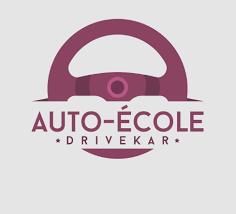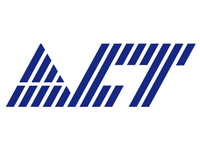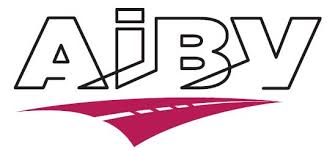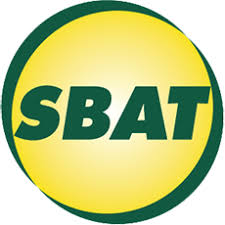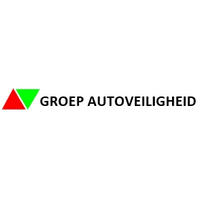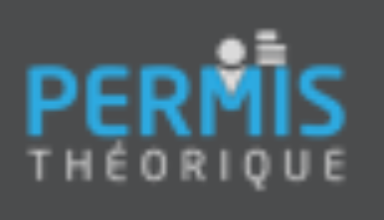Synthèse
Since 2020, the Belgian driving school market has continued to experience a shift in demand, not least because young Belgians are increasingly delaying obtaining their driving license, the trend being most pronounced among the under-30s. This trend is attributed to a number of factors, not least the high costs associated with buying, maintaining and insuring vehicles for new drivers, as well as the fact that the number of new drivers is increasing.hicles for new drivers, increasing traffic congestion and parking difficulties, improved public transport options and growing environmental awareness.
Despite these changes in licensing trends, the automotive market in Belgium remains buoyant, with the country experiencing average annual growth of 1.3% in the number of passenger cars on the road, indicating a thriving automotive sector that supports demand for driving licenses. Online driver training platforms have emerged, providing theoretical content and practical tests to help drivers obtain their license, although their success rate and impact on road safety have been the subject of debate. The market is marked by the presence of both traditional and digital offerings, with the latter offering more attractive margins despite the criticism they have received. In terms of demographics, the 15-29 age group represents a significant segment of driving schools' potential clientele, even if purchasing power is eroding, with an average annual decline of 0.3%.
Regulatory changes, such as the introduction of a risk perception test, continue to influence the market, potentially leading to an increased need for candidates to prepare more thoroughly. Driving schools are unevenly distributed across Belgium, with a higher concentration in the more densely populated Brussels-Capital region than in Flanders and Wallonia. The market offers a range of licenses, including for motorcycles, cars, trucks and buses, with the cost and structure of training varying according to multiple factors. Overall, demographic and economic factors, competition from alternative means of transport and changing regional regulations will continue to shape the Belgian driving school market beyond 2020. Note: the summary provided is based on the scope of the data presented in the original user text, which offered statistical data and demographic estimates. Any developments or trends beyond this period could not be incorporated due to the lack of up-to-date data in the original text.
The Belgian driving school market: changing demographics and consumer preferences The driving school market in Belgium is linked to the country's automotive industry.
An upward trend in vehicle registrations indicates a healthy automotive market, which generally stimulates demand for driver training services. Despite this positive correlation, the age at which Belgians obtain their driving license is increasing, with less enthusiasm among the under-20s and a greater tendency to obtain a license between the ages of 20 and 30. This development can be attributed to a range of factors, including soaring insurance costs for young drivers, improved public transport infrastructure in urban areas, and growing ecological concerns encouraging the use of public transport over car ownership. A notable trend in the Belgian market is the emergence of a preference for online access to theoretical driving knowledge. Traditional driving schools are facing fierce competition from digital platforms and mobile apps offering theory content and test simulations, although their success rates and impact on road safety have come under close scrutiny.
French driving school companies have expressed interest in the Belgian market, taking advantage of their considerable size and resources. The main factors influencing the driving school sector are household purchasing power and demographic changes, particularly in the 15-29 age bracket, which represents around 15-20% of the population. These young people, who number over two million, are seen as potential customers for driving schools. Regulatory changes, such as the compulsory risk perception test introduced in mid-2018, are also contributing to growth in the driving school market by requiring more comprehensive preparation for applicants. in Brussels, specifically, the number of driving licenses successfully issued paints a distinct picture. While practical tests validated in the region grew by 11%, a national decline of around 10% was observed.
Trends show a decline in the number of people obtaining their license before the age of 20, and an increase in the number of people obtaining their license between the ages of 20 and 30. Driving school prices in Belgium appear to be on a par with neighboring countries such as France, where 20 hours of lessons cost an average of around 1,000 euros, or almost 50 euros per hour. Taking into account additional costs for tests and permits, an aspiring driver can spend in excess of 100 euros for a completely independent route to a license, often relying on personal guides for practical experience. The breakdown of driving schools in Belgium shows a concentration in Flanders, with around 87 schools, compared with 57 in Wallonia and 32 in Brussels. These figures suggest that the driving school market in Belgium is highly competitive The Belgian driving school market is a complex network of traditional establishments, newer online offerings and a mix of large and multi-regional players. These players position themselves in the market according to their service models, geographical coverage and adoption of technology.
We will look at the main players highlighted in the previous text and explore their distinctive roles.
- Traditional driving schools: These form the backbone of the sector, being present in local communities and offering practical, face-to-face driving instruction. Their services generally encompass both theoretical and practical training, with a particular emphasis on preparing candidates for both parts of the driving test. These schools are often well-established, with a loyal clientele, and have the advantage of providing direct, personal advice and instruction.
- Online platforms and applications: A fast-growing segment of the market, online platforms have revolutionized access to theoretical knowledge for aspiring drivers. By offering paid access to a repository of courses and sample tests, these digital services meet the needs of technophile users looking for convenience and flexibility. Some platforms are extending their reach regionally or nationally, positioning themselves as a direct competitor to traditional driving schools.
- French market entrants: Due to the similarities between the Belgian and French driving license models, some major French players are showing a keen interest in expanding into the Belgian market. Their size, experience and financial resources give them a competitive edge in acquiring customers and expanding their market share.
- Feder Drive members: The federation of driving schools, known as Feder Drive, brings together accredited establishments throughout Belgium. By affiliating with Feder Drive, members are represented with public bodies, receive advice on regulatory changes and often benefit from negotiated discounts on relevant training and resources.
- Regionalized operators: After the sixth reform, which regionalized the driving school sector, various operators emerged with distinct offerings tailored to the Flemish, Walloon and French regions.these are tailored to the specific regulations and learner profiles of the Flemish, Walloon and Brussels-Capital regions. Although the segmentation does not highlight specific company names, it does describe the structure of the market and indicates the range of service providers from which aspiring drivers can choose. It's a diverse sector, with traditional mainstays, young innovators and regional specialists all vying to train the next generation of Belgian drivers.
à la compréhension de ce marché
Détail du contenu
 Informations
Informations
- Nombre de pages : 30 pages
- Format : Version digitale et PDF
- Dernière mise à jour : 05/10/2021
 Sommaire et extraits
Sommaire et extraits
1 Market summary
1.1 Definition
Driving schools support their customers in the theoretical and practical training necessary to drive a motor vehicle. The theory exam consists of approximately 50 questions on the traffic regulations and the practical test is validated by an examiner after a minimum of 20 hours of driving course. The candidate must also undergo first aid training beforehand.
There are many types of driving licences, including
- the B licence authorising the driving of cars ;
- the A permit - motorcycles;
- the C permit - trucks;
- permit D - bus, coach.
The Belgian automotive market seems to be in good health since the number of registrations is up slightly
However, obtaining a driving licence does not follow the same trajectory. We observe a increasing the age at which a driver's licence can be obtained, since fewer and fewer young people get it before their 20th birthday and more and more people drop it between the ages of 20 and 30. Many young people wait until they have finished their studies or obtain a job before they can take their driving licence and, in the process, acquire a vehicle.
This trend is also explained by the higher insurance prices for young drivers, but also by the development of public transport of large urban areas. The need to get a driver's licence seems less urgent and necessary. Finally, we can also mention the sensitivity to environmental issues which again encourages people to use public transport instead of buying a car
1.2 The automotive market, a dynamic lever in Belgium
To best characterize the driver's license market, we study adjacent markets, including the automotive market. The increase in the number of motorists and, by extension, the number of cars in circulation, is logically correlated with the number of driving licences issued per year. The dynamism of the automotive industry represents a ...
1.3 An online offer that facilitates access to permits
Recently, many online offers have made it easier to obtain a driving licence in Belgium. These offers allow future road users to access theoretical knowledge directly from home in order to prepare for the theoretical examination . Most actors propose a payable access to a platform on which the user will have ...
2 Demand analysis
2.1 The main determinants of the activity
Among the main factors influencing the driving school market in Belgium are
Household purchasing power License can have a potentially high cost, especially for those for whom the license is not essential and who may be encouraged to postpone their passage in the event of a decrease in purchasing power. Demographic ...
2.2 A market ignored by young people? The example in the Brussels-Capital Region
In order to know more precisely the profile of driving school customers, the situation in the Brussels-Capital Region, a particularly densely populated area, is being studied
The number of validated practical exams in the Capital Region for all age groups is increasing between **** and ****. This number increases from **,*** in **** to **,*** in ...
3 Market structure
3.1 The cost of variable training
The prices of theoretical and practical courses are similar to those in France, one can count **** € for ** hours of lessons, or an average of **€ per hour . The student driver must choose a licensing formula based on his or her profile, experience, budget and availability
Several additional costs are expected:
Price of ...
3.2 Uneven distribution on Belgian territory
According to mobilit.belgium.be there was *** driving schools listed in **** throughout Belgium.
In ****, according to lemonitor.be there are *** driving schools in the country:
**% in Flanders; **% in Wallonia; **% in Brussels.
If we assume this constant proportion we can assume that around ** driving schools were operating in Flanders in ****, compared ...
4 Analysis of the offer
4.1 The services offered
Two options are possible the free course and the course through a driving school . Both of these courses are aimed at obtaining a temporary driving licence, which allows the apprentice driver to progress further before taking the exams.
The free sector
The free sector, also known as the Provisional Driving Licence ...
4.2 The different possible permits in Belgium
Among the services for which driving schools can provide training are:
AM - Motorcycles AM - * Wheels A* - Motorcycles B - Cars B** - Trailer car (***) C* - Truck C* - Trailer truck (***) D* - Buses, Coaches D* E D D E E - Buses, trailers (***) G - Agricultural ...
4.3 The driving licence, a two-part test
A theoretical examination:
The theoretical examination consists of ** questions relating to both the Highway Code and the Road Traffic Police Act (***). A minimum of ** correct answers is required to pass the exam.
All information on the theoretical examination are detailed on the Belgian road safety website.
A practical test:
The practical ...
4.4 An example of a tariff extract: Automobile Safety
The following document illustrates the price levels of the various services related to driving licences. Driving school managers must take these prices into account and inform potential customers
Source: ****
5 Rules and regulations
5.1 Summary of the driving licence
The following graphic from the Groupement des Entreprises Agréées pour le Contrôle Automobile et le Permis de Conduire (***) summarizes the different steps and constraints involved in obtaining a driver's licence
Source: ****
5.2 A profession regulated by the regions
A regionalization of regulation
As part of the sixth state reform, the "access to leadership" competence was regionalized and effectively transferred to the regions on * January ****.
In order to operate a driving school, it is particularly important to
To be officially recognized as a driving school; Equity received both an operating ...
6 Positioning of the actors
6.1 Segmentation of actors
The following stakeholder segmentation is used
- ClickClickdrive
- Auto-école Drivekar
- Permisdeconduire-online.be
- GOCA (GROUPEMENT DES ENTREPRISES AGREEES POUR LE CONTRÔLE AUTOMOBILE ET LE PERMIS DE CONDUIRE)
- Autocontrole
- Aibv
- SBAT
- Autosécurité
- GROEP AUTOVEILIGHEID
- Permis théorique
- La Sécurité Automobile
Toutes nos études sont disponible en ligne et en PDF
Nous vous proposons de consulter un exemple de notre travail d'étude sur un autre marché !
Entreprises citées dans cette étude
Cette étude contient un panorama complet des entreprises du marché avec les derniers chiffres et actualités de chaque entreprise :
 Choisir cette étude c'est :
Choisir cette étude c'est :
Accéder à plus de 35 heures de travail
Nos études sont le résultat de plus de 35 heures de recherches et d'analyses. Utiliser nos études vous permet de consacrer plus de temps et de valeur ajoutée à vos projets.
Profiter de 6 années d'expérience et de plus de 1500 études sectorielles déjà produites
Notre expertise nous permet de produire des études complètes dans tous les secteurs, y compris des marchés de niche ou naissants.
Notre savoir-faire et notre méthodologie nous permet de produire des études avec un rapport qualité-prix unique
Accéder à plusieurs milliers d'articles et données payantes
Businesscoot a accès à l'ensemble de la presse économique payante ainsi qu'à des bases de données exclusives pour réaliser ses études de marché (+ 30 000 articles et sources privées).
Afin d'enrichir nos études, nos analystes utilisent également des indicateurs web (semrush, trends…) pour identifier les tendances sur un marché et les stratégies des entreprises. (Consulter nos sources payantes)
Un accompagnement garanti après votre achat
Une équipe dédiée au service après-vente, pour vous garantir un niveau de satisfaction élevé. (+33) 9 70 46 55 00
Un format digital pensé pour nos utilisateurs
Vous accédez à un PDF mais aussi à une version digitale pensée pour nos clients. Cette version vous permet d’accéder aux sources, aux données au format Excel et aux graphiques. Le contenu de l'étude peut ainsi être facilement récupéré et adapté pour vos supports.
 Nos offres :
Nos offres :
the driving school market | Belgium
- Quels sont les chiffres sur la taille et la croissance du marché ?
- Quels leviers tirent la croissance du marché et leur évolution ?
- Quel est le positionnement des entreprises sur la chaine de valeur ?
- Comment se différencient les entreprises du marché ?
- Données issues de plusieurs dizaines de bases de données






